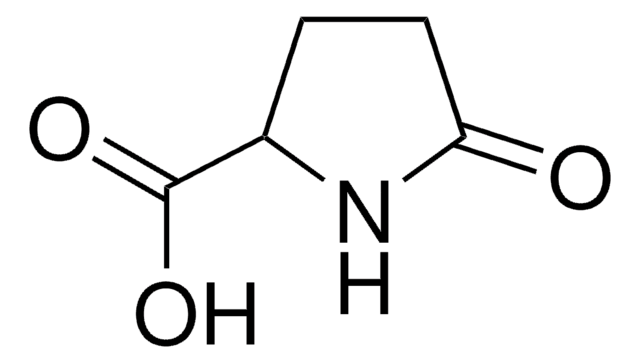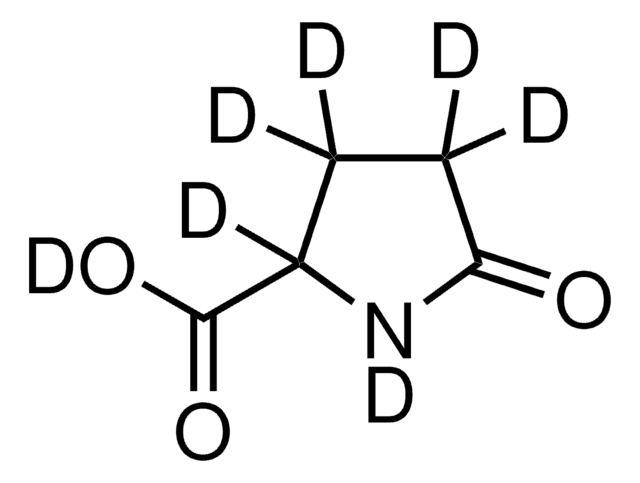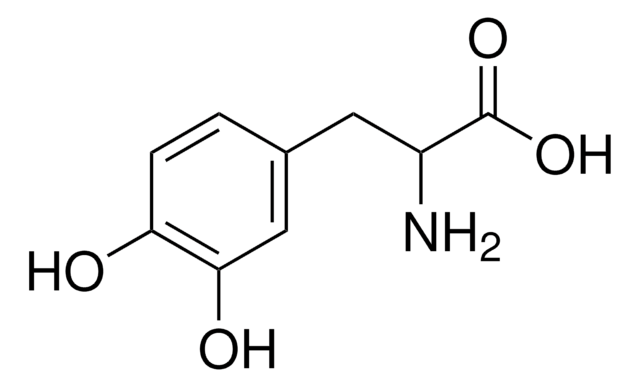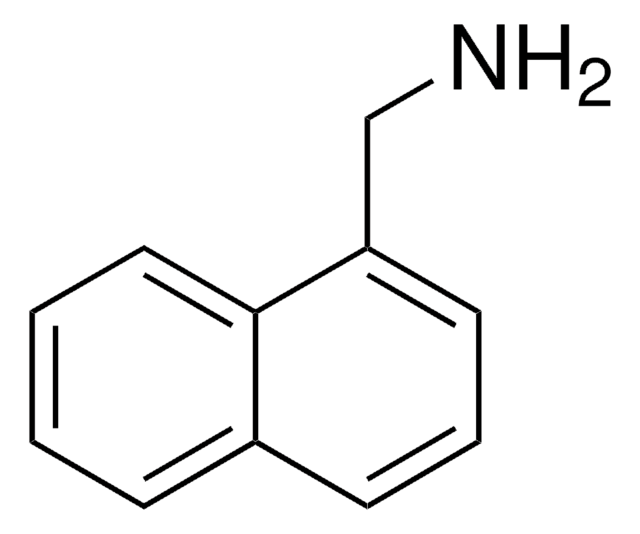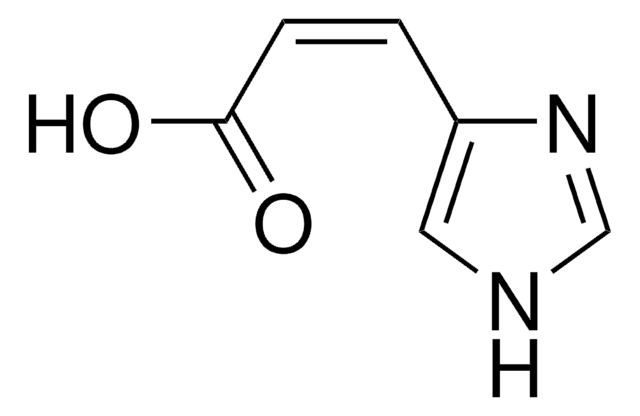83160
L-Pyroglutamic acid
≥99.0% (T), for peptide synthesis
Synonym(s):
(S)-(−)-2-Pyrrolidone-5-carboxylic acid, (S)-5-Oxo-2-pyrrolidinecarboxylic acid
About This Item
Recommended Products
Product Name
L-Pyroglutamic acid, ≥99.0% (T)
Quality Level
Assay
≥99.0% (T)
form
solid
optical activity
[α]20/D −10.5±1°, c = 5% in H2O
optical purity
enantiomeric ratio: ≥99:1 (GC)
reaction suitability
reaction type: solution phase peptide synthesis
ign. residue
≤0.05%
mp
155-162 °C
160-163 °C (lit.)
application(s)
peptide synthesis
SMILES string
OC(=O)[C@@H]1CCC(=O)N1
InChI
1S/C5H7NO3/c7-4-2-1-3(6-4)5(8)9/h3H,1-2H2,(H,6,7)(H,8,9)/t3-/m0/s1
InChI key
ODHCTXKNWHHXJC-VKHMYHEASA-N
Looking for similar products? Visit Product Comparison Guide
Application
- Nonproteinogenic amino acids such as (3S,4R)-3,4-dimethyl-L-pyroglutamic acid and (3S,4R)-3,4-dimethyl-L-glutamine.
- Chiral N-heterocyclic carbenes (NHCs) as catalysts for the asymmetric dimerization of alkylarylketenes to give the corresponding α-quaternary β-alkylidenyl-β-lactones.
It is also used in the total synthesis of (−)-stemoamide and celogentin C.
Signal Word
Danger
Hazard Statements
Precautionary Statements
Hazard Classifications
Aquatic Chronic 3 - Eye Dam. 1
Storage Class Code
11 - Combustible Solids
WGK
WGK 3
Flash Point(F)
Not applicable
Flash Point(C)
Not applicable
Personal Protective Equipment
Choose from one of the most recent versions:
Already Own This Product?
Find documentation for the products that you have recently purchased in the Document Library.
Protocols
Separation of Pyruvic acid, United States Pharmacopeia (USP) Reference Standard; Tartaric acid, United States Pharmacopeia (USP) Reference Standard; Citric acid, United States Pharmacopeia (USP) Reference Standard; Malic acid, United States Pharmacopeia (USP) Reference Standard; L-Pyroglutamic acid, ≥99.0% (T); Lactic acid, United States Pharmacopeia (USP) Reference Standard; Acetic acid, ≥99.99% trace metals basis; Succinic acid, United States Pharmacopeia (USP) Reference Standard
Our team of scientists has experience in all areas of research including Life Science, Material Science, Chemical Synthesis, Chromatography, Analytical and many others.
Contact Technical Service